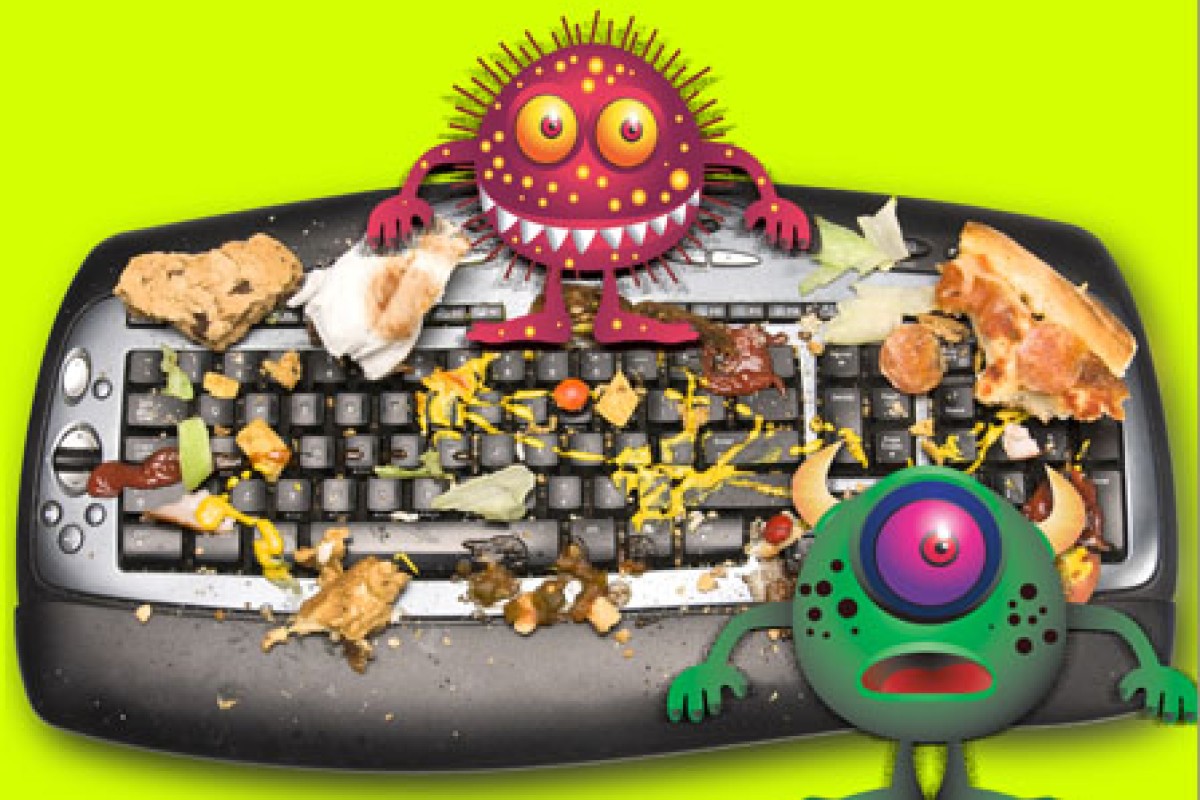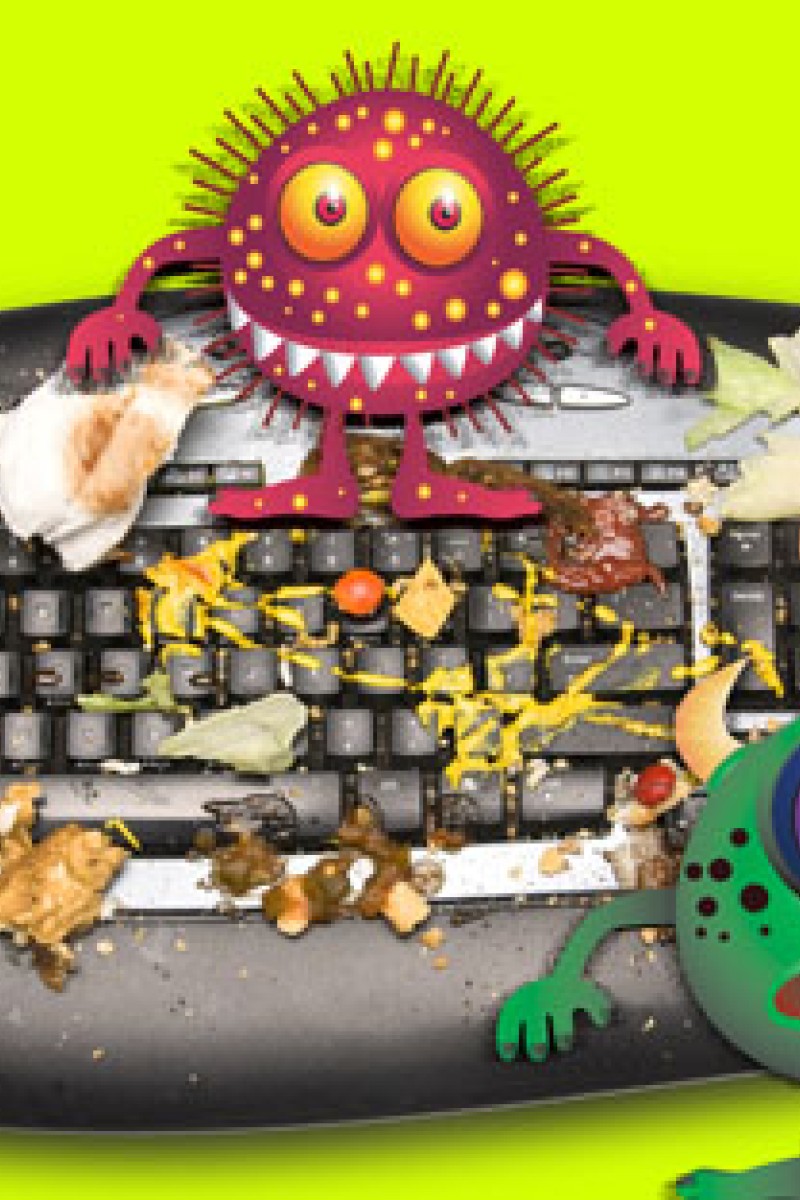 iii
iiiIn a recent online poll, Young Post found that 75 per cent of the 125 readers who answered very rarely or never clean their computer keyboards. Yet keyboards are one of the tools we use most in everyday life; not cleaning them is like not washing bed linen.
With computers, touch screens and headphones, we constantly type, press, swipe and plug in. And with mobile multifunctional products like iPhones or iPads, we tend to share our devices more. This means, on an invisible scale, we're also sharing one another's germs.
Dr Lo Wing-lok, a specialist in infectious disease, says our hands are the dirtiest parts of our bodies. 'We do everything with our hands, so we are constantly exchanging germs with the environment,' Lo says.
'Most of the time, we don't think of washing our hands before touching a keyboard. This makes our keyboards one of the dirtiest elements in our environment. It is the same thing with the telephone, lift buttons or [touch-screen] devices.'
He says headphones are slightly cleaner, because we don't have a habit of holding on to escalator handrails with our ears.
Viruses and bacteria can be transmitted by touch. But William Chui Chun-ming, vice-president of the Society of Hospital Pharmacists, says the chances of getting sick from such viruses are very low. 'Viruses can hardly survive in an open environment,' he says.
People should be more concerned with bacteria instead. The Staphylococcus aureus and Escherichia coli bacteria are easily picked up. Those bacteria usually cause minor discomfort such as abdominal cramps, diarrhoea or skin infections, like abscesses and boils. But they can also develop into more serious diseases, like blood or lung infections. But there's no need to panic. Follow a few simple rules to keep away from trouble.
Tricks and tips - introducing new habits and reflexes
The first thing to remember is to wash your hands when you arrive at school or reach home. Use liquid soap and water or rub with an alcohol-based hand towel or gel for 15 seconds.
Secondly, get used to cleaning your keyboard, touch-screen device and phone every day. To do so, unplug all cables and turn off the devices. Then put a drop of disinfectant on a lint-free rag and wipe surfaces. Leave to air-dry.
iPhones and iPad maker Apple does not recommend using alcohol to clean the devices, but doesn't offer any alternative either. Many users who apply a drop of disinfectant with care have not damaged their devices. Just avoid any openings; it's best to stick a plastic sheet over your touch screen to protect it.
You can also buy computer and mobile phone wipes from any big technology store. These wipes don't usually contain disinfectant, so they won't get rid of germs, but it's a good start. And if you wash your hands regularly, your devices should be fairly clean. Look out for anti-microbe and washable keyboards, too.
Keep an alcohol gel with you at all times to clean your hands after using a public computer, ATM or lift. Don't share your devices when you are not well - use Bluetooth instead to share pictures or other data. Avoid touching your face after using a public device.
Finally, if you are at a hotel, bank or other staffed building, ask for disinfectant to clean your hands once you've finished using a public device.
<!--//--><![CDATA[// ><!-- PDRTJS_settings_1983386 = { "id" : "1983386", "unique_id" : "default", "title" : "", "permalink" : "" }; //--><!]]>